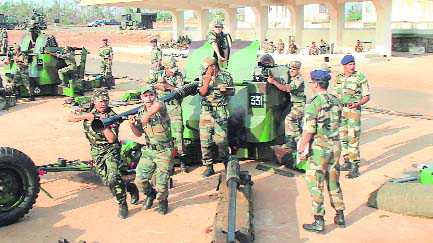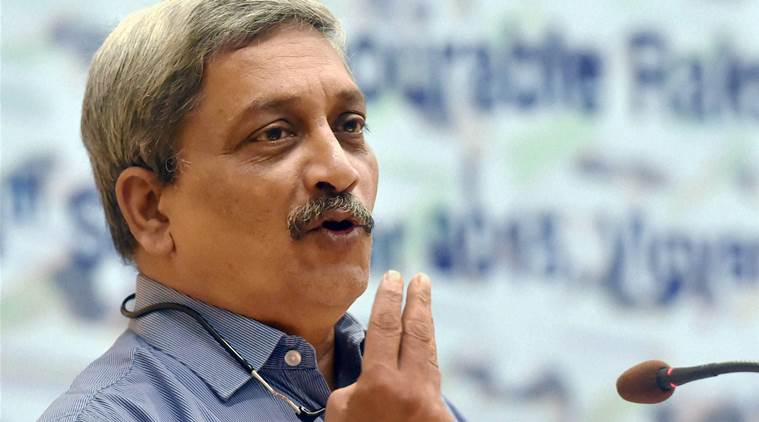
Pervin Malhotra
Q.After I missed the NDA deadline, I joined an engineering college instead after Class XII. I am currently pursuing BTech (Civil). However, I am still very keen to join the Indian Army, if it’s still possible. Please tell me how I can do so.
— ujagar singh bisht
A.Sure, it certainly is possible! And it’s so wonderful to hear you say that joining the army is your first career choice.One of the finest fighting forces in the world, the Indian Army gives you opportunities for continuous professional growth at every step. Where else will you get such an opportunity to constantly upgrade your skills?And, there are specific entry routes for engineering students like you who wish to join the Army:
- University Entry Scheme (Permanent Commission)
Eligibility: Pre-final / final year Engineering studentsAge: 19 – 25 yearsSelection: WSSB Interview, Medical ExamNotification for the UES usually appears in May every year.Upon selection, you’ll undergo training at the Indian Military Academy (IMA), Dehradun.
- Technical Graduate Entry Scheme (Permanent Commission)
Eligibility: Final year Engineering students / Graduate EngineersAge: 20 – 27 yearsSelection: Group Tests; Psychological Tests; Interview; Medical Exam.Recruitment through TGES is conducted twice a year with the notifications appearing in April and October.Upon selection, you’ll undergo one year of training at the Indian Military Academy (IMA), Dehradun.
- Short Service Commission (Technical) Men / Women
Eligibility: Graduate Engineers in notified disciplinesAge: 20 – 27 years
Selection: Direct SSB interview
Recruitment for SSC (Technical) is done twice a year with the notifications appearing in January and July.Upon selection, you’ll be sent for 49-weeks of training at the Officer Training Academy (OTA), Chennai.You’ll find a wealth of details on: joinindianarmy.nic.in
Engine driver in Railways
Q.I am a diploma holder in mechanical engineering. Can you please tell me how I can become an engine driver in the railways?
— mahinder paliwal
A.Engine drivers are now called Loco Pilots. So, you can apply for the post of Assistant Loco Pilot (ALP) and work alongside the Loco Pilot to ensure the safe and punctual running of trains in the Indian Railways.Besides assisting the Loco Pilot in driving the train, you’ll also watch out for signals, carry out minor repairs and perform regular safety checks.The job requires you to remain alert and focussed for long stretches of time. Presence of mind is essential to this job.As far as the eligibility is concerned, you’ll be glad to know that you have what it takes. The minimum academic qualification is matriculation (passed class 10) plus an ITI Diploma (recognised by AICTE) in Mechanical, Electrical, Electronics or Automobile Engineering.The selection process comprises a written exam followed by an interview, aptitude test and a medical test.The 90-minute test consists of 120 multiple-choice questions ranging in topics from General English/Hindi, Basic Arithmetic, and General Knowledge as well as some subject-specific questions based on the specified minimum qualifications.Your next promotion will be to the level Sr Assistant Loco Pilot and thereafter, Loco Pilot. Loco Pilots can further go on to become Loco Foremen (Loco Supervisors), Power Controllers or Crew Controllers.It may perhaps surprise you to know that our Indian Railways happens to be the country’s biggest recruiter (over 14 lakh people are employed presently). And with our swiftly proliferating railway network, IR is expected to emerge as the world’s largest within the coming decade.Recruitment for the post of ALP as well as several other posts in the Indian Railways is done each year by the Railway Recruitment Boards (RRBs). These 21 RRBs spread across the country have clearly defined Railway Zones, Divisions, Production Units, etc. for which they select candidates.Do make sure you keep out an eye for the recruitment notices that are issued in the leading newspapers including the Employment News as well as this paper.
Practising law in India with a foreign degree
The standard of the six-paper English-medium test is that of Law courses offered by universities recognised by the BCI. He will need to score a minimum of 40% in each of the papers, though.Please ask him to log onto the BCI’s website: www.barcouncilofindia.org for more details about the syllabus, examination schedule & application form.






































































